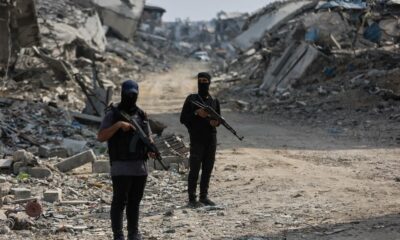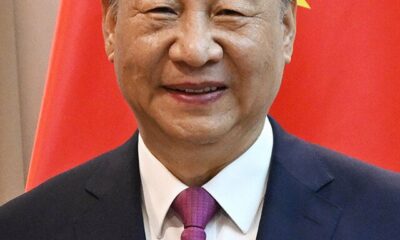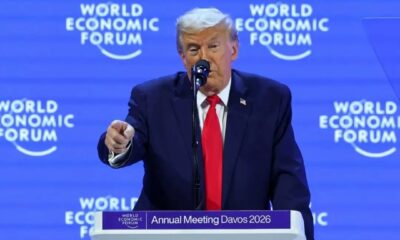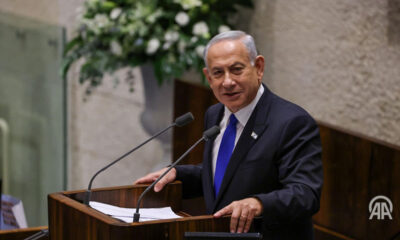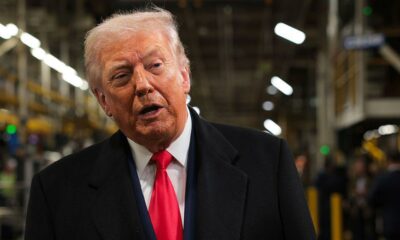News
BRICS Fires Back: Trump Tariffs and Iran Strikes Draw Sharp Rebuke at Global Summit
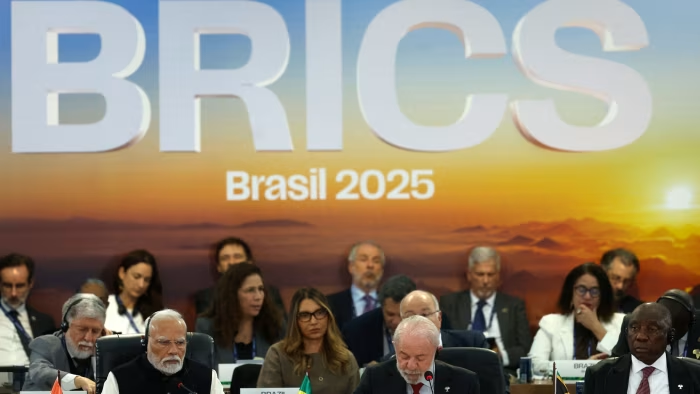
Emerging powers push back against US trade pressure and Middle East aggression, as Trump warns of more tariffs
The BRICS summit erupted into a diplomatic clash this weekend as the 11-member bloc of emerging economies issued a rare, unified rebuke of US President Donald Trump’s economic and foreign policies, even as they carefully avoided naming him directly.
At the heart of their joint declaration: deep concern over Washington’s escalating trade war tactics and recent US-backed military strikes on Iran, both of which BRICS members warned could destabilize global markets and security.
A Global Reprimand, Without Saying “Trump”
While the official summit statement stopped short of naming Trump, the message was unmistakable. The group voiced “serious concern about the rise of unilateral tariff measures,” calling them a threat to global economic stability.
The response came just days after Trump threatened to reimpose sweeping tariffs on US trading partners and mere months after he slapped new duties on steel, tech components, and rare earth imports. BRICS leaders made it clear: they’re done playing by Washington’s rules.
Trump Fires Back: “10% More for You”
Never one to back down, Trump responded in typical fashion directly and digitally.
“Any country aligning themselves with the Anti-American policies of BRICS will be charged an ADDITIONAL 10% Tariff. There will be no exceptions to this policy,”
Trump posted on Truth Social just hours after the summit wrapped.
It was a thinly veiled shot at not only long-time BRICS members like China, Russia, and South Africa, but also newer entrants like Iran and Saudi Arabia, who have added geopolitical heft and complexity to the bloc.
Backing Tehran, Quietly
BRICS also offered symbolic support for Iran, condemning recent US-Israeli military strikes on nuclear and defense facilities inside Iranian territory. While some members, like India and Brazil, urged moderation, others quietly aligned with Tehran’s call for more decisive condemnation.
But Iran, in an uncharacteristic move, held its fire, voicing “reservations” privately, but stopping short of outright rejection of the group’s carefully worded statement.
Saudi Arabia and the Elephant in the Room
One noticeable absentee: Saudi Arabia’s foreign minister, who skipped Sunday’s talks entirely. The kingdom remains a key US ally, heavily reliant on American military exports. According to a Brazilian government source, Riyadh’s absence was a diplomatic nod to its awkward balancing act between BRICS and Washington.
The political waters are getting murkier for these middle powers as they try to stake out independent foreign policies while still benefiting from Western trade and security partnerships.
Leadership Void? Xi and Putin Stay Home
In a summit that was meant to showcase BRICS’ rising global clout, the absence of China’s President Xi Jinping and Russia’s Vladimir Putin created an undeniable vacuum.
Putin, speaking via video due to an ICC war crimes warrant, praised BRICS as a “pillar of new global governance” a familiar refrain from Moscow. Xi, however, skipped the summit for the first time in 12 years, fueling speculation about China’s internal recalibrations or possible cooling of enthusiasm for the expanded, Iran-inclusive BRICS.
Beyond Tariffs: Tech and AI Take Center Stage
While trade wars and geopolitics dominated headlines, BRICS also made time to push for global regulation of artificial intelligence, insisting that access to the technology should not be monopolized by rich nations.
With AI innovation dominated by US companies like OpenAI, Google, and Microsoft, BRICS, especially China is pushing hard to narrow the tech gap and shape future global standards.
A Fractured Bloc, But Still a Force
BRICS is often criticized for lacking internal unity and it’s true that members diverge widely on everything from Israel-Palestine to climate action. But this summit showed that on key global irritants particularly US dominance in trade and foreign policy, the bloc can still speak in near-unison.
Whether that unity will hold as Trump’s tariff clock ticks toward August 1, however, remains to be seen.
For now, BRICS has made its message clear: the world is bigger than Washington, and they’re no longer afraid to say so.
{Source: IOL}
Follow Joburg ETC on Facebook, Twitter , TikTok and Instagram
For more News in Johannesburg, visit joburgetc.com

